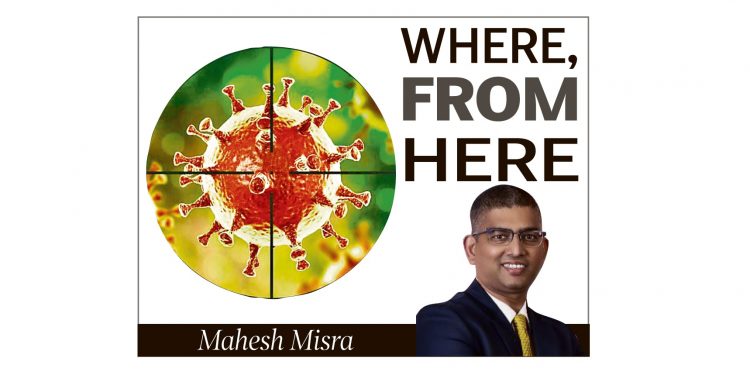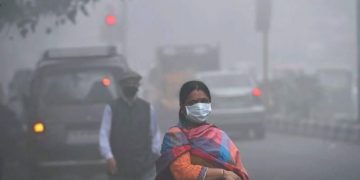Here begins a series on the future that awaits us all once the COVID-19 threat is overcome. Specialists share their views on the possibilities that lie ahead. —EDITOR
Humankind faces an unprecedented spell of uncertainty and panic, thanks to Covid-19. This has led to widespread crystal-ball gazing to have a peek at the post pandemic world. At a global level, one sees the world getting ‘less global’. Tariff barriers that were carefully dismantled over decades are likely to make direct or soft comebacks. Protectionism will be the new nationalism. This is required to revive struggling businesses and makes for good optics.
Many governments will be back as Big Brother. Firstly, this is because the need for an overarching government apparatus to drive pharma research and healthcare has been acutely felt. Additionally, many politicians and bureaucrats have tasted blood by running a quasi-police state albeit temporarily. The overhang is unlikely to disappear in a hurry.
Genuine experts will experience new-found respect. Demand for super specialization will skyrocket. The world has seen a stark difference between the men and boys in an array of fields; critical care, disaster management and financial regulation, to enumerate a few.
Entrepreneurship will boom especially in the online space. The used case for many opportunities has already been demonstrated in various phases of the lockdown. A venture that promotes online education as a proper substitute to classroom teaching is likely to find much greater favour with investors now. Ditto for a telemedicine proposition, or a glitch-free conferencing solution. Online models also face headwinds in the form of regulatory resistance. Those are likely to reduce sharply since social utility is now firmly established.
The poorer sections of the Indian society are likely to seek work opportunities closer home. This may hold true even if there is a slight financial downside. The sting of apathy won’t disappear easily. Our federal system has developed strong faultlines. The consequent coordination gaps have posed massive (and I daresay avoidable) hardship to millions. They will tend to cast a safety net around themselves.
The middle and high-income groups in India are likely to resemble their western counterparts. While the coolness quotient of mopping floors and making fried eggs will taper off, the tendency to allow fewer people access to homes will linger. Purchase of dishwashers and vacuum cleaners will help the process and make people less dependent. Many seem to have belatedly discovered the virtues of alternate interests and work-life balance. This is a positive development and par for the course in advanced societies.
Budget will trump luxury across categories. This will largely be driven by the prudence of conserving cash in a spell of uncertainty. Lockdowns also seem to have compelled people into hard introspections. The overall sentiment being expressed on social media is that of “simple-living-high-thinking”. I will wager that some of the behavioural changes mentioned above will reverse themselves in a space of less than two years. We are, after all, creatures of habit.
The writer is the CEO of a Financial Services firm based in Delhi NCR. Views expressed are personal.






































